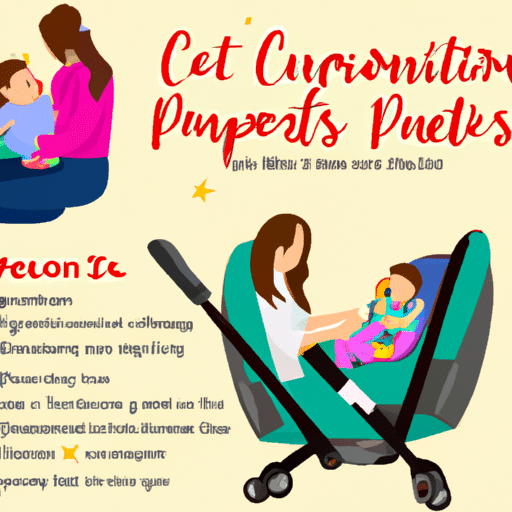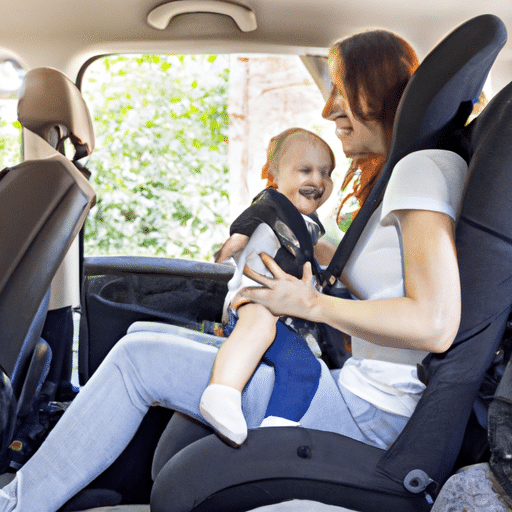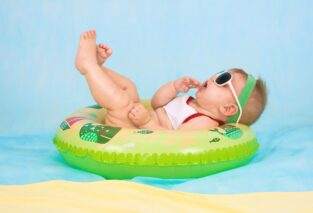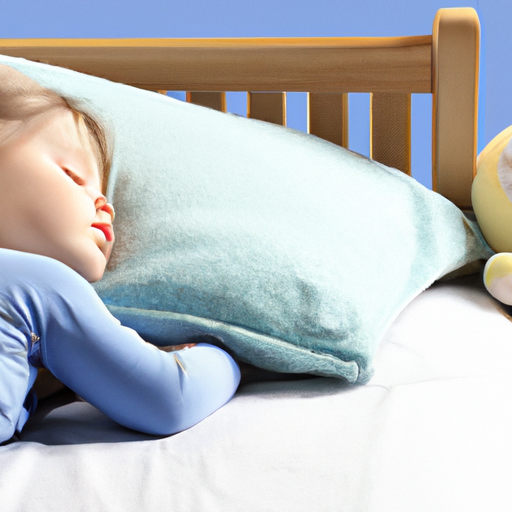Do you ever wonder why your little one cries and fusses every time you have to put them in their car seat? Well, we’ve got the answer for you! The “Why Do Babies Hate Car Seats?” product is here to uncover the mystery behind this common problem faced by parents. With expert research and innovative solutions, this product aims to provide you with valuable insights and effective strategies to make every car ride a peaceful and enjoyable experience for both you and your baby. Say goodbye to those tantrums and hello to smooth journeys!
Overview
Introduction to the topic
Car rides can often be a source of distress for babies, leaving parents puzzled and concerned about their little one’s discomfort. Understanding why babies hate car seats is crucial for ensuring their well-being and maintaining peace during rides. Several factors contribute to this aversion, ranging from physical discomfort and motion sickness to restricted vision and negative associations. This article will explore these reasons in detail and provide insight into how to address and alleviate babies’ discomfort in car seats.
Physical Discomfort
Tightness and confinement
One of the primary reasons babies dislike car seats is the feeling of tightness and confinement. Being strapped into a car seat can be restrictive for their little bodies, preventing them from moving freely. The snug fit that is necessary for their safety can also create discomfort and a sense of claustrophobia, especially for babies who prefer more spacious environments. It’s important to find a balance between safety and allowing babies some freedom of movement to reduce their discomfort.
Sweating and overheating
Car seats, especially when made of materials that are not breathable, can contribute to babies’ discomfort through sweating and overheating. As infants have less developed temperature regulation systems, they are more prone to feeling hot and sweaty in confined spaces. This discomfort can further escalate into fussiness, agitation, and even contribute to motion sickness. Ensuring proper ventilation and choosing car seats made from breathable materials can help mitigate this issue.

Positioning
Uncomfortable body alignment
Babies’ bodies are still developing, and incorrect positioning in car seats can lead to discomfort. Improper alignment may result in strained muscles, which can further cause agitation and restlessness during car rides. It’s crucial to ensure that the car seat is appropriately installed and adjusted to support babies’ natural spinal curvature and maintain a comfortable position for their neck and head. Regular adjustments and periodic breaks during long rides can help alleviate any discomfort caused by incorrect positioning.
Lack of support
Babies need adequate support to feel comfortable and secure in their car seats. A lack of proper support can cause babies to slump or lean in uncomfortable positions, leading to discomfort during car rides. This lack of support can be particularly noticeable in younger infants who have not yet developed full neck and torso control. Providing additional support through strategically placed cushions or using car seats with built-in support can help alleviate this discomfort and improve their overall car seat experience.
Inability to move freely
Babies have a natural inclination for exploration and movement, and confining them to a car seat can be challenging for their curiosity. Being unable to move freely and explore their surroundings can lead to restlessness and frustration. While ensuring their safety is paramount, incorporating regular breaks during long car rides and engaging them with toys or interactive activities can help redirect their attention and provide relief from the feeling of confinement.
Motion Sickness
Developmental immaturity
Motion sickness is not limited to adults; babies can also experience it due to their developing sensory systems. Their vestibular system, responsible for balance and spatial orientation, is still maturing, making them more prone to motion sickness. The combination of the car’s movement and the restricted visual field can cause a mismatch between their sensory input and lead to discomfort. Gradual exposure to car rides, keeping rides as smooth as possible, and positioning the car seat to provide a clearer view of the surroundings can help reduce motion sickness in babies.
Sensory overload
Car rides can trigger sensory overload in babies, leading to discomfort and distress. The combination of noise, movement, and unfamiliar surroundings can overwhelm their sensitive senses, making car seats an unpleasant experience. Minimizing sensory stimuli by reducing noise levels inside the car, using sunshades to filter bright lights, and keeping the surrounding environment calm can help alleviate sensory overload and improve babies’ overall comfort in car seats.
Restriction of Vision
Limited visual stimulation
A limited field of view can contribute to babies’ dislike of car seats. Being unable to fully see their caregivers or the world around them can lead to feelings of isolation and frustration. The view from a rear-facing car seat, while crucial for safety, can be particularly restricted. Installing a backseat mirror or placing engaging toys within their line of sight can help provide visual stimulation and alleviate their sense of confinement.
Feeling isolated
Babies crave social interaction and connection, and being confined to a car seat can lead to a sense of isolation. Unable to fully engage with their caregivers or interact with other passengers, babies may express their discomfort through fussiness and crying. Maintaining verbal and visual engagement with babies during car rides, playing soothing music, or even involving them in gentle sing-alongs can help create a sense of connection and reduce their feeling of isolation.
Negative Associations
Previous negative experiences
Babies have a remarkable memory for associating experiences with certain emotions. If a baby has previously experienced discomfort or distress in a car seat, they may start associating it with negative feelings. This negative association can lead to increased reluctance and aversion towards car rides, further intensifying their discomfort. Creating positive associations by incorporating enjoyable activities, such as playing their favorite songs or providing comforting toys, can help replace negative associations with pleasant ones.
Feeling trapped
Babies thrive on freedom and independence, and the confinement of a car seat can leave them feeling trapped. This sense of confinement can be challenging for babies who have started exploring and asserting their independence. Allowing babies moments of freedom outside the car seat, such as at rest stops or during breaks, can help mitigate their discomfort and give them a sense of control over their environment.
Desire for Independence
Curiosity and exploration
Babies are naturally curious beings, driven by an innate desire to explore their surroundings. Car seats limit their ability to satisfy this curiosity, which can contribute to their dislike of being strapped in. Channeling their curiosity by providing interactive toys, engaging them in conversation during car rides, or even narrating the journey to them can help fulfill their exploratory needs and reduce their discomfort.
Control and autonomy
As babies begin to develop their sense of autonomy, being confined to a car seat can become frustrating. The lack of control over their environment and inability to make choices can lead to restlessness and irritability. Allowing babies opportunities for limited decision-making, such as letting them choose a toy or snack for the car ride, can help satisfy their need for autonomy and alleviate discomfort associated with a lack of control.
Separation Anxiety
Fear of separation
Babies’ sense of security often relies on the presence of their caregivers, and being separated from them, even momentarily, can trigger distress. The separation from their caregivers during car rides can cause anxiety and discomfort, leading to resistance towards car seats. Incorporating their favorite comfort items, such as a stuffed animal or blanket, and ensuring regular visual and verbal reassurance during car rides can help alleviate separation anxiety and reduce their aversion towards car seats.
Preference for caregiver’s presence
Babies seek comfort and reassurance from their caregivers, and the inability to physically be with them during car rides can contribute to their dislike of car seats. The absence of the caregiver’s touch and soothing presence can be challenging for babies, particularly during moments of distress. Ensuring that caregivers are seated within close proximity, engaging in soothing conversation, and occasionally reaching out to offer a reassuring touch can help reduce babies’ discomfort and create a sense of security in their car seats.

Disrupted Sleep
Inability to sleep comfortably
Babies require ample sleep for their growth and development, and discomfort in car seats can disrupt their peaceful slumber. Inadequate head and neck support, improper positioning, or an uncomfortable environment can hinder their ability to sleep comfortably in car seats. Ensuring that the car seat provides appropriate support for their head and neck, creating a comfortable and soothing environment within the car, and planning car rides during their usual sleep times can help minimize disruption to their sleep.
Interrupted sleep patterns
Car rides that involve frequent stops, noisy surroundings, or uneven roads can disrupt babies’ sleep patterns. Interruptions to their usual sleep routine can contribute to their discomfort and lead to increased fussiness and crying during car rides. Planning car rides during their regular sleep times, choosing smoother routes, and minimizing unnecessary stops can help maintain their sleep routine and ensure a more comfortable experience in the car seat.
Conclusion
Understanding and addressing babies’ discomfort
Babies’ dislike for car seats stems from a variety of factors, including physical discomfort, motion sickness, restricted vision, negative associations, and a desire for independence. By understanding these reasons and taking appropriate steps, we can help alleviate their discomfort and create a more pleasant car seat experience for babies. From ensuring proper positioning and support to providing visual stimulation, engaging toys, and maintaining verbal and visual engagement, addressing babies’ discomfort can make car rides a more enjoyable and peaceful experience for both babies and caregivers.








